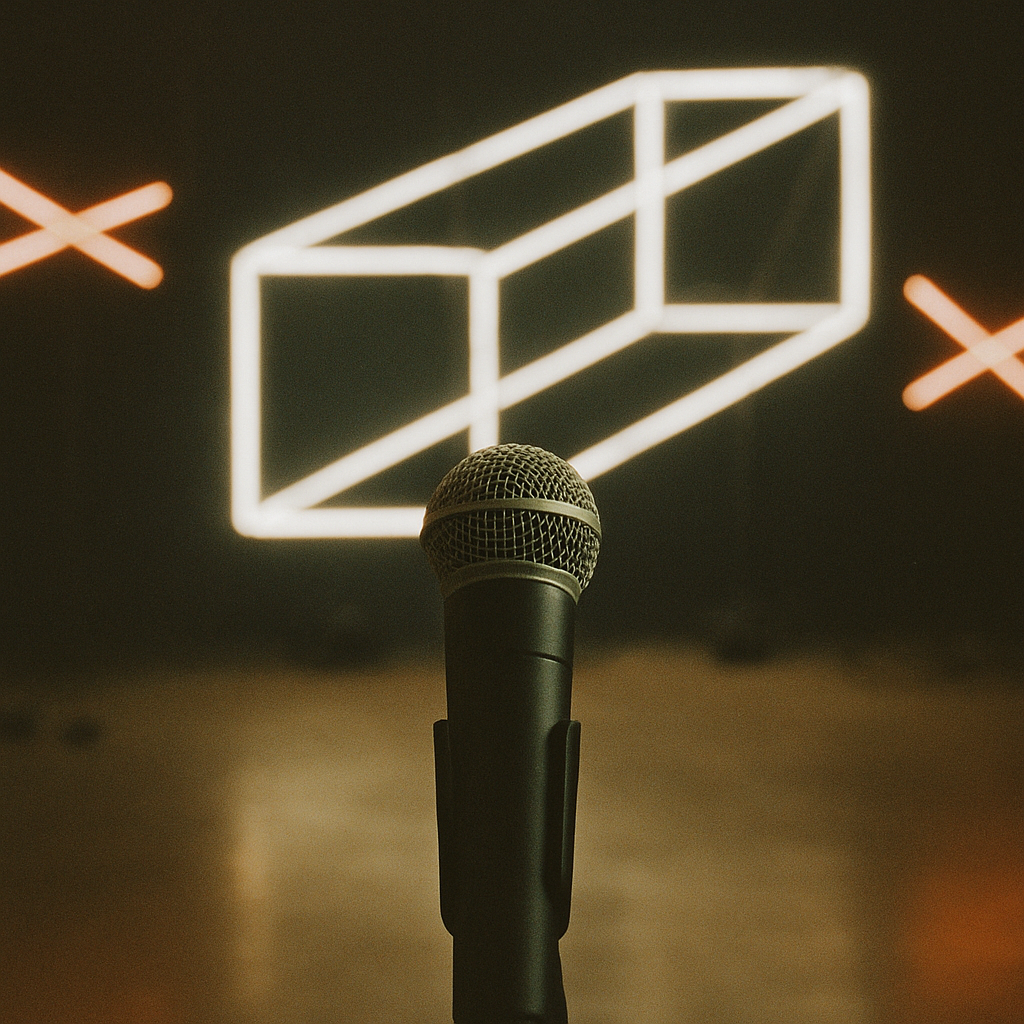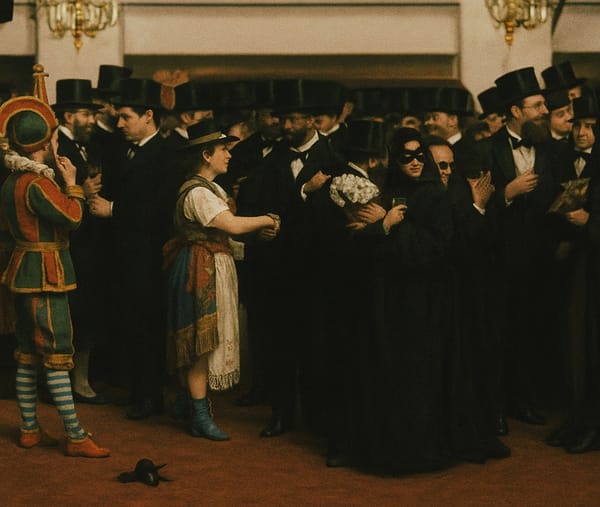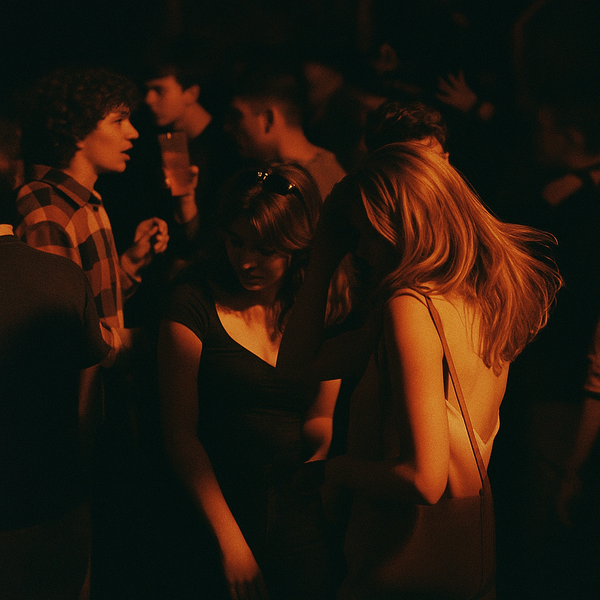AI Hosts: The New DJs of YouTube Music

The mathematical elegance of a DJ's work has always fascinated me—the precise timing of transitions, the harmonic relationships between tracks, the algorithmic patterns of building and releasing tension. Now YouTube Music is testing something that would have made Xenakis smile: AI-generated radio hosts that don't just play music but converse about it, explain it, contextualize it. This isn't merely automation masquerading as innovation. It's a fundamental reimagining of how we discover and experience music.
YouTube Music's "Ask Music" feature, currently in testing phases across iOS and Android platforms, represents something more profound than another chatbot. Users describe what they want to hear in natural language—"upbeat pop anthems," "songs that sound like a rainy Tuesday," or even more abstract requests—and the AI constructs not just a playlist but an entire radio experience, complete with conversational interludes that provide context about the artists, the era, or the musical techniques at play.
The technical architecture here deserves attention. Unlike traditional algorithmic recommendations that analyze listening patterns and serve similar tracks, this system operates on semantic understanding. It parses intent, mood, and cultural context. When you ask for "music that sounds like walking through Tokyo at 2 AM," the AI must translate that poetic request into acoustic parameters: perhaps reverb-heavy production, sparse instrumentation, a certain BPM range that matches a walking pace, maybe even pulling from city pop or ambient electronic genres associated with Japanese urban nightscapes.
The Curation Paradox
What strikes me most about this development is how it addresses a paradox that's plagued digital music since Napster: infinite choice creates paralysis, not freedom. The human DJ solved this through curation and narrative—John Peel didn't just play records; he created sonic journeys with stories, context, and his peculiar enthusiasm. YouTube's AI hosts attempt to recreate this narrative scaffolding, but through computational means.
The system builds on YouTube Music's earlier experiments with AI-powered features, including a hum-to-search tool that can identify songs from user humming or singing. These aren't isolated features but components of a larger system that understands music as both signal and symbol, as waveform and cultural artifact.
Consider the implications for independent artists. Traditional radio required gatekeepers—program directors, DJs with particular tastes, record label relationships. Algorithmic playlists shifted those gates but didn't remove them; they simply made them opaque. Now we have AI that can theoretically understand and surface music based on its actual sonic and emotional qualities rather than its promotional budget or streaming metrics. An unsigned bedroom producer making ethereal soundscapes might suddenly find their work perfectly placed in someone's "music for reading Murakami novels" request.
The Rights Equation
Of course, this utopian vision collides with the complex reality of music rights and compensation. YouTube has been working with Universal Music Group and other major rightsholders to develop frameworks for AI-generated content that respects copyright while enabling innovation. The company announced plans to compensate artists and rightsholders when AI systems use their work, though the mechanisms remain deliberately vague—likely because they're still being invented.
This isn't just about playing existing songs; it's about understanding them deeply enough to create new contexts and connections. When an AI host explains why a particular chord progression creates tension, or how a producer's use of sidechain compression became influential, it's performing a kind of musical analysis that traditionally required years of study. The question becomes: who owns that insight? The original artist? The AI's creators? The vast corpus of music criticism that trained the model?
The patent implications here fascinate me. YouTube's approach suggests they're not just building a product but establishing a defensible technical moat. The ability to generate coherent, contextual commentary about music in real-time, matched to user requests expressed in natural language—that's a series of interlocking technical challenges, each potentially patentable.
Harmonic Convergence
What we're witnessing is a convergence of several technological streams: natural language processing sophisticated enough to parse poetic requests, music information retrieval that can map acoustic features to semantic descriptions, and generative AI that can create coherent narrative around these connections. It's systems design at its most elegant—multiple complex components working in harmony to create something that feels simple, even magical, to the end user.
The feature's gradual rollout—first in testing with select users, then expanding to iOS, now reaching broader audiences—follows the careful orchestration of a musical composition. Each phase provides feedback that refines the system. Users asking for "workout music that doesn't sound like workout music" or "jazz for people who think they don't like jazz" are essentially training the AI to understand the subtle cultural codes we embed in our musical preferences.
This reminds me of Brian Eno's concept of generative music—systems that create endless variations within defined parameters. But where Eno's work explored the aesthetics of emergence, YouTube's AI hosts explore the semantics of preference. They're not generating new music but generating new ways to understand and access existing music.
The Memory of Algorithms
The deeper question this raises is whether algorithms can truly appreciate music or merely simulate appreciation convincingly. When an AI host discusses the melancholy of a minor seventh chord or the rebellious energy of a distorted guitar, is it accessing genuine understanding or sophisticated pattern matching? Perhaps the distinction matters less than we think. After all, human DJs often rely on received wisdom, cultural scripts, and learned associations when discussing music.
What matters more is whether these AI hosts can create genuine discovery moments—those instances when you hear something unexpected that perfectly matches an emotional state you couldn't quite articulate. Early user reports suggest they can, though with the occasional surreal misfire that reminds you you're conversing with a machine.
The technology also raises questions about musical diversity. Will AI hosts, trained on existing patterns, reinforce current biases in music consumption? Or might they, freed from human prejudices and commercial pressures, actually surface more diverse music? The answer likely depends on the intentionality of their design—whether YouTube's engineers optimize for engagement, discovery, or some more complex metric that balances both.
Composing Tomorrow
As I consider YouTube Music's AI hosts, I'm reminded that we're not just witnessing a new feature but a new form of cultural mediation.
References
- https://techcrunch.com/2024/07/15/youtube-music-is-testing-an-ai-generated-radio-feature-and-adding-a-song-recognition-tool
- https://www.theverge.com/2024/7/15/24199202/youtube-music-ai-playlists-test-hum-to-search
- https://musically.com/2024/07/16/youtube-music-confirms-test-of-ai-generated-conversational-radio
- https://www.techradar.com/audio/audio-streaming/youtube-musics-ai-radio-officially-gets-a-name-heres-what-you-can-ask-music-to-do
- https://9to5google.com/2025/03/17/youtube-music-ai-radio-iphone
- https://techcrunch.com/2023/09/21/youtube-to-add-ai-creator-tools-to-find-music-for-videos-add-dubs
- https://9to5google.com/2024/09/10/youtube-music-ask-music
- https://www.theverge.com/2023/8/21/23840026/youtube-ai-music-copyright-monetization-universal
- https://www.phonearena.com/news/youtube-musics-ai-generated-radio-feature-to-officially-be-called-ask-music_id162441
- https://techcrunch.com/2023/08/21/youtube-is-working-on-a-plan-to-compensate-artists-and-rightsholders-for-ai-music
- https://cincodias.elpais.com/smartlife/lifestyle/2024-09-11/youtube-music-ia-listas-ask-music.html
- https://arstechnica.com/google/2025/09/youtube-music-is-testing-ai-hosts-that-will-interrupt-your-tunes
- https://techcrunch.com/2025/09/26/youtube-music-tests-ai-hosts-that-share-trivia-and-commentary
Models used: claude-opus-4-1-20250805, gpt-image-1




